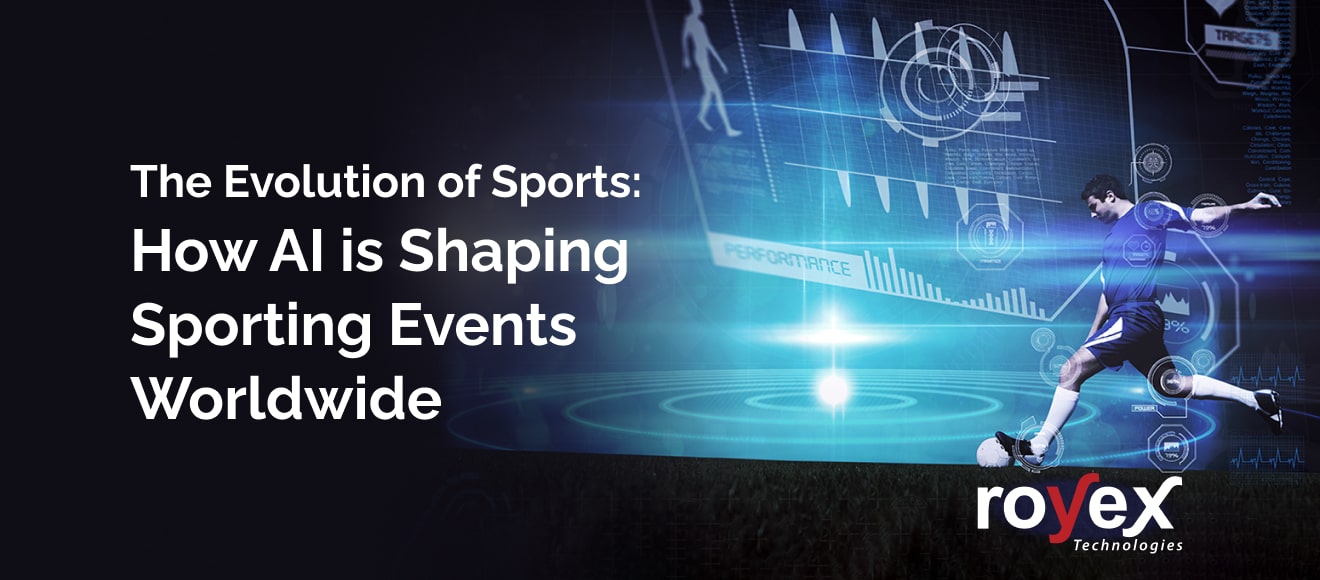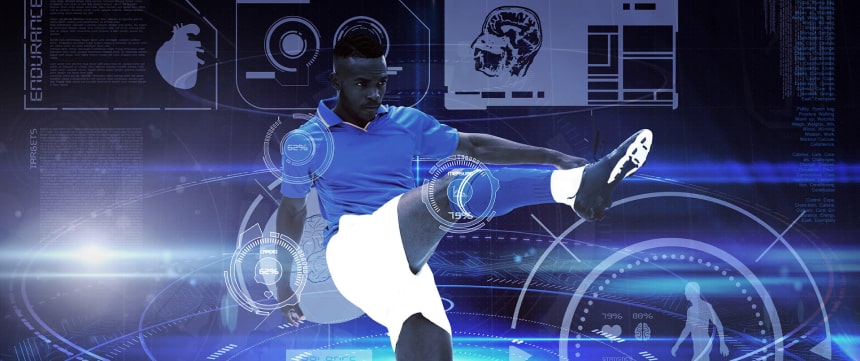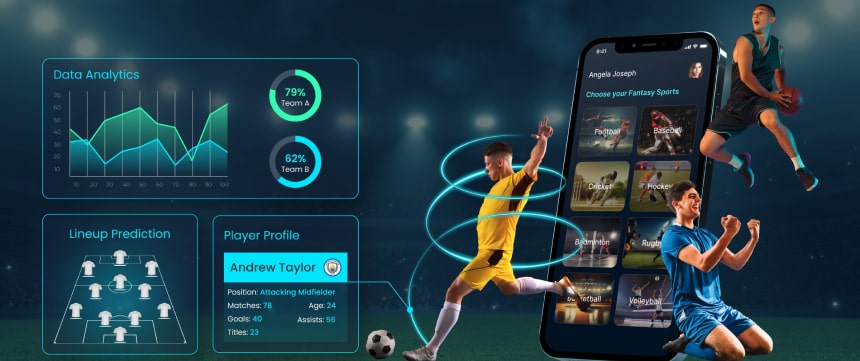
The Evolution of Sports: How AI is Shaping Sporting Events Worldwide
Artificial Intelligence (AI) is rapidly changing the world as we know it, and sports are no exception. From player tracking and analysis to game-day predictions, AI is already having a major impact on the way we watch and play sports.
In recent years, we have seen a growing number of sports teams and leagues adopt AI technologies. For example, the National Football League (NFL) has been using AI to track player movements and improve its game-day operations. The NBA is also using AI to analyze player data and create new ways to engage fans. And in the world of cricket, the International Cricket Council (ICC) has been using AI to help umpires make decisions.
These are just a few examples of how AI is being used in sports. As the technology continues to develop, we can expect to see even more innovative and exciting ways for AI to shape the future of sports.
In addition, recent statistics underscore the profound impact of AI on the sports industry. According to a report by Statista, the global sports technology market is projected to reach a value of $40.2 billion by 2024, with AI playing a pivotal role in driving this growth. Furthermore, a survey conducted by Deloitte revealed that 96% of sports industry professionals believe that AI will have a significant impact on their organizations in the coming years. These statistics not only highlight the increasing adoption of AI in sports but also underscore its transformative potential across various aspects of the industry. In this article, we explore the profound impact of AI on the sports industry.
Athlete Performance Analysis

AI-driven analytics have revolutionized how athletes train and perform. Advanced algorithms analyze vast amounts of data, including biometric information, performance metrics, and opponent strategies, to provide actionable insights. By leveraging AI-powered tools, coaches and athletes can identify strengths, weaknesses, and areas for improvement with unparalleled accuracy.
One example of AI-driven athlete performance analysis is seen in professional basketball, where teams utilize advanced tracking systems like Second Spectrum to monitor player movements and interactions on the court. These systems employ computer vision and machine learning algorithms to analyze player positioning, shot selection, and defensive strategies in real time. Coaches can then use this data to develop customized training programs tailored to each player's unique needs, enhancing overall team performance. Similarly, in track and field, wearable technology such as Catapult Sports' athlete monitoring system collects biomechanical data during training sessions and competitions. AI algorithms process this data to identify patterns and trends, helping coaches optimize training regimens and prevent injuries. Such AI-driven analytics empower athletes to reach their full potential by providing personalized insights that drive continuous improvement.
Here are a few real-life examples:
-
Rafael Nadal uses AI to improve his tennis game: The Spaniard has been working with IBM Watson since 2017 to gain insights into his performance. The data analytics platform helps Nadal track his physical condition, identify weaknesses in his game, and develop new strategies. Nadal has credited AI with helping him win his 19th Grand Slam title at the 2022 French Open.
-
The San Antonio Spurs use AI to scout players: The NBA team uses a variety of AI-powered tools to evaluate potential draft picks and free agents. These tools help the Spurs identify players who are a good fit for their team and who are likely to be successful in the NBA.
-
The New England Patriots use AI to improve their gameday operations: The NFL team uses AI to track player performance, predict injuries, and simulate game scenarios. This data helps the Patriots make better decisions on the field and gives them a competitive edge.
Injury Prevention and Management
Injuries are a major concern in sports, as they can have a significant impact on both athlete performance and team success. In recent years, artificial intelligence (AI) technologies have been increasingly used to predict and prevent injuries by analyzing biomechanical data, monitoring player fatigue levels, and identifying potential risk factors. Through predictive analytics and real-time monitoring, teams can take proactive measures to mitigate injury risks and optimize player health and longevity.
Here are a few real-world examples of how AI is being used to prevent and manage injuries in sports:
-
In 2018, the NFL partnered with IBM Watson to develop a predictive analytics tool that would help teams identify players at risk for injury. The tool analyzes data from player sensors, such as accelerometers and gyroscopes, to track their movements and identify patterns that could indicate an impending injury. The tool is effective in identifying players who are at risk for ACL tears, which are one of the most common injuries in football.
-
In 2019, the NBA team the Golden State Warriors used AI technology to help manage the rehabilitation of Kevin Durant, who was recovering from an Achilles tendon injury. The team used a motion-capture system to track Durant's movements and create a personalized rehabilitation program that was tailored to his specific needs. The program helped Durant to return to the court more quickly and successfully than he would have otherwise.
-
In 2020, the English Premier League team Liverpool FC used AI technology to help prevent injuries. The team used a data analytics platform to track player data, such as their running speed, distance traveled, and acceleration, to identify patterns that could indicate an impending injury. The team then used this information to make adjustments to their training program and to help players stay healthy.
Fan Engagement and Personalized Experiences
Beyond the playing field, AI is transforming the way fans interact with and experience sporting events. From personalized content recommendations to immersive virtual reality experiences, AI-powered technologies are enhancing fan engagement and driving greater connectivity between teams and their supporters. Chatbots and AI-driven social media platforms enable teams to engage with fans in real time, providing personalized updates, insights, and interactive experiences. By creating more meaningful and personalized interactions, AI is fostering deeper connections between fans and their favorite teams, enhancing the overall spectator experience.
-
Personalized Content Recommendations: In 2016, the National Football League (NFL) partnered with Microsoft to launch the NFL Next Gen Stats, a suite of AI-powered analytics that provides real-time data and insights on player performance. The NFL Next Gen Stats are used to create customized content for fans, such as highlight reels, player comparisons, and game predictions. The NFL Next Gen Stats have been praised for their accuracy and insights, and have helped to engage fans in new ways.
-
Using FanCam technology to identify and highlight fans that are cheering the loudest.
-
Using social media to encourage fans to interact with one another and with the team, and to share their experiences.
-
Creating personalized fan experiences, such as offering exclusive access to players or events, or providing personalized merchandise.
Performance Prediction and Game Analysis

AI algorithms are increasingly being used to analyze game data and predict performance outcomes with remarkable accuracy. By crunching vast amounts of historical data and real-time statistics, AI models can forecast game results, player performance, and strategic outcomes, empowering coaches and analysts to make data-driven decisions. AI-powered game analysis can help teams improve their performance in several ways. For example, AI can be used to:
- Identify players who are struggling and need more support.
- Predict which players are most likely to be successful in upcoming games.
- Determine the best strategies for winning games.
- Spot trends in the data that can help teams improve their performance over time.
In addition to helping teams win games, AI-powered game analysis can also be used to improve fan engagement. For example, AI can be used to create personalized game experiences for fans, such as recommending players to watch or providing insights into the game. AI can also be used to create interactive games and simulations that fans can enjoy.
One notable example is the use of AI in soccer. In 2017, the English Premier League team Tottenham Hotspur began using AI to analyze player performance and identify areas for improvement. The club's data scientists developed a system that tracked player movements, speed, and positioning, and used this data to create detailed performance reports for each player. The reports were then used by the coaching staff to make adjustments to training and tactics. The following season, Tottenham Hotspur finished in third place in the Premier League, their highest finish since 2012.
Another example of AI in sports is the use of IBM Watson to analyze baseball data. In 2015, the Chicago White Sox became the first MLB team to use Watson to help with game strategy. The team's data scientists used Watson to analyze historical data and identify trends that could be used to improve player performance. The team also used Watson to help with scouting and player development. The following season, the White Sox won the American League Central division title for the first time since 2008.
Revenue Generation and Business Optimization

AI is not only transforming on-field performance and fan engagement but also driving innovation in revenue generation and business optimization for sports organizations. From dynamic pricing models to targeted marketing campaigns, AI technologies enable teams to optimize ticket sales, sponsorship deals, and merchandising strategies. By leveraging data-driven insights and predictive analytics, organizations can maximize revenue streams, enhance operational efficiency, and unlock new opportunities for growth and sustainability. From grassroots organizations to professional leagues, AI-powered solutions are reshaping the business of sports and fueling the industry's evolution.
Let's take a look at some of the real-world examples of how AI is being used for revenue generation and business optimization
-
The NBA's Sacramento Kings have been using AI to optimize their ticket sales since 2017. The team uses a predictive analytics model to determine the optimal prices for tickets to each game, based on factors such as the opponent, the day of the week, and the weather. The model has helped the Kings increase their ticket sales by 10%.
-
The NFL's Dallas Cowboys have been using AI to improve their marketing campaigns since 2018. The team uses a data-driven approach to identify the most effective ways to reach their target audience. For example, the team uses AI to track the online behavior of fans and target them with personalized marketing messages. The Cowboys have seen a significant increase in their brand awareness and fan engagement since they started using AI.
-
The MLB's Los Angeles Dodgers have been using AI to improve their merchandising strategies since 2019. The team uses a predictive analytics model to determine the most popular products for each fan base. The model has helped the Dodgers increase their merchandise sales by 20%.
These are just a few examples of how AI is being used to improve revenue generation and business optimization for sports organizations. As AI continues to evolve, we can expect to see even more innovative ways for sports teams to use this technology to their advantage.
Winding Up
As we witness the transformative impact of AI on sporting events worldwide, it becomes clear that we are entering a new era in the world of sports. From optimizing athlete performance to revolutionizing fan engagement and driving strategic decision-making, AI is reshaping every aspect of the sports industry. As sports organizations continue to embrace and leverage AI-driven technologies, the possibilities for innovation and growth are endless. By harnessing the power of AI, the future of sports is poised to be more dynamic, engaging, and inclusive than ever before.
Partnering with Royex Technologies
Royex Technologies is a leading AI development company in Dubai. We have a team of experienced professionals who are passionate about using AI to solve real-world problems. We have a proven track record of success in developing AI solutions for a variety of industries, including sports.
We are experts in developing AI solutions for sporting events. We can help you to improve your event management, fan engagement, and marketing. We can also help you to create new revenue streams by developing innovative AI-powered products and services.
If you are looking for a partner to help you develop an AI solution for your sporting event, then Royex Technologies is the perfect choice for you. We have the experience, expertise, and passion to help you achieve your goals.
Check our portfolio to see our previous works. Contact us via email at info@royex.net or call us at +971566027916. To get started with us.





